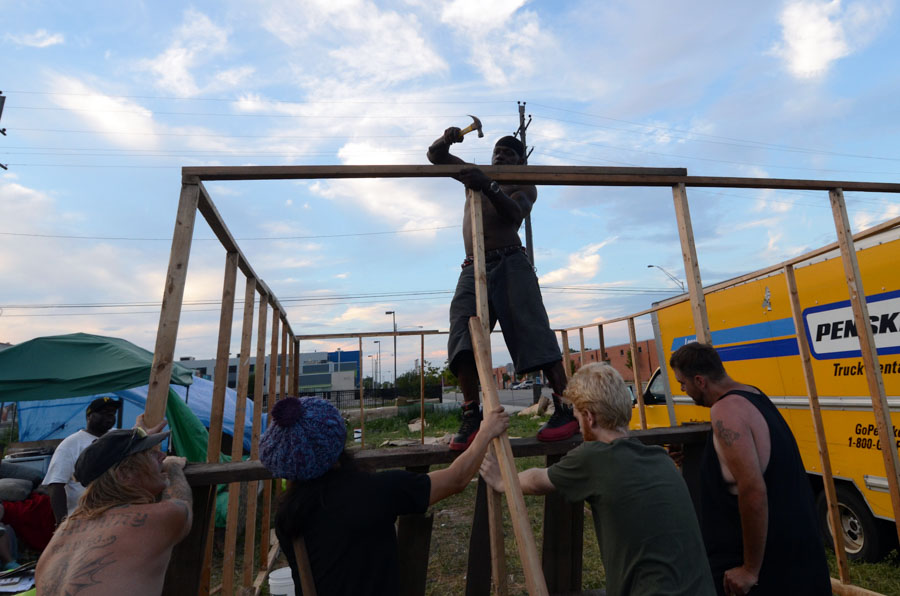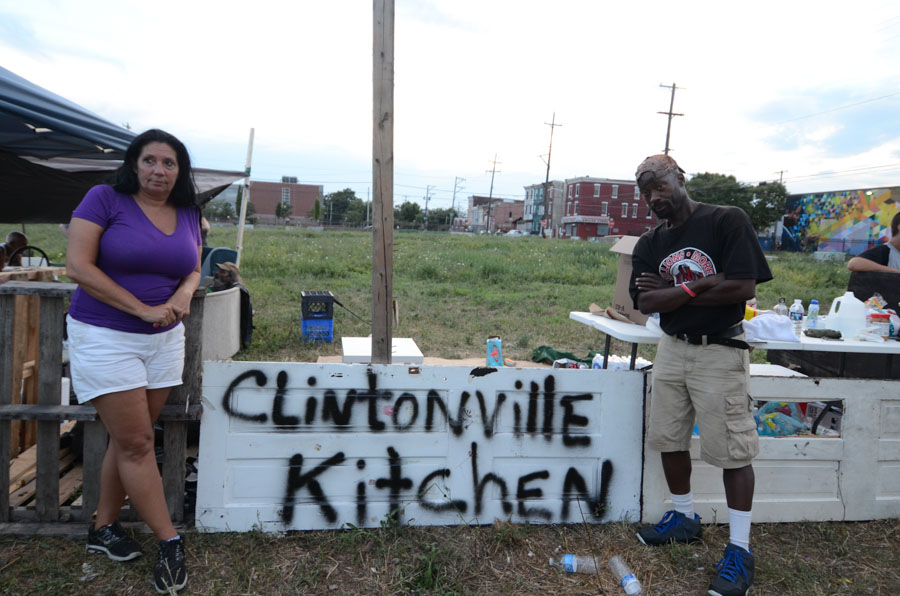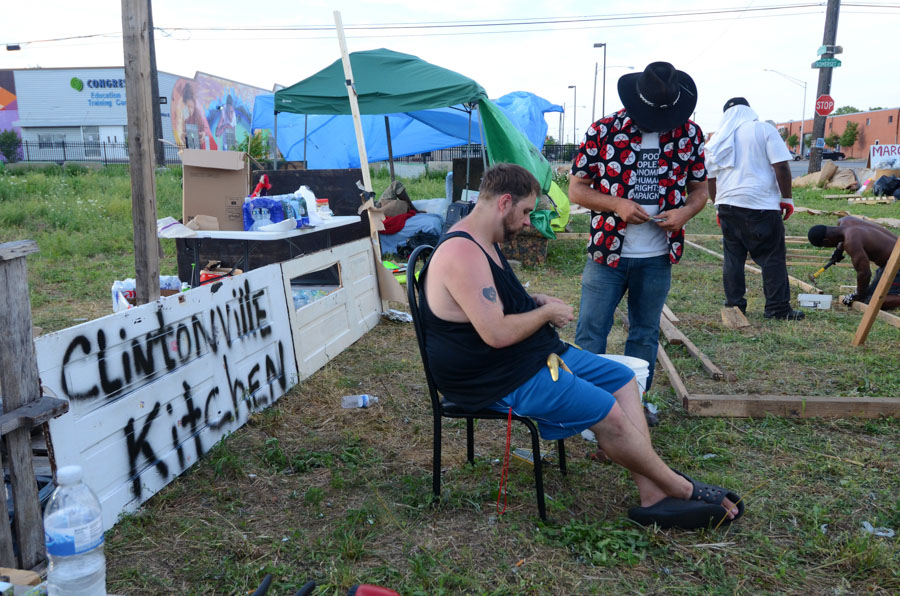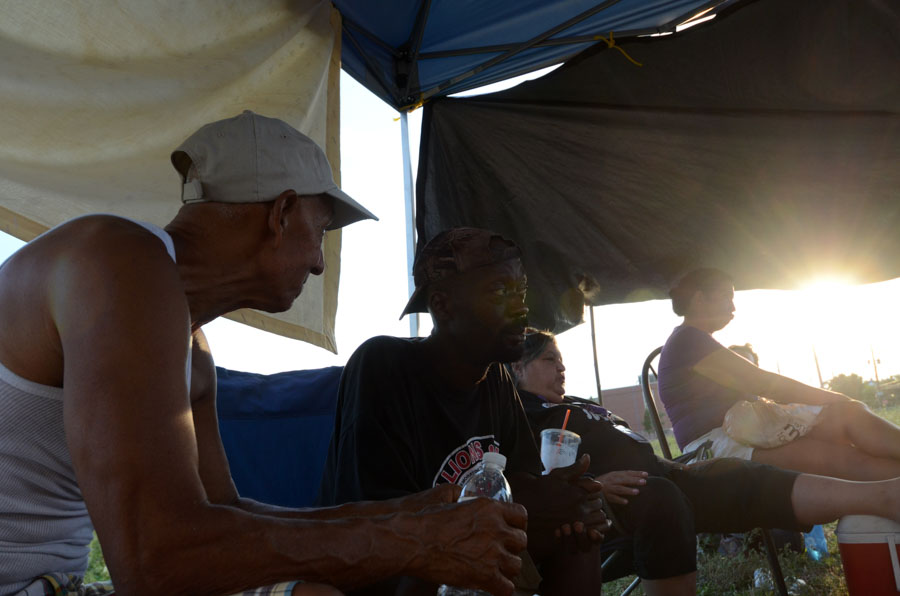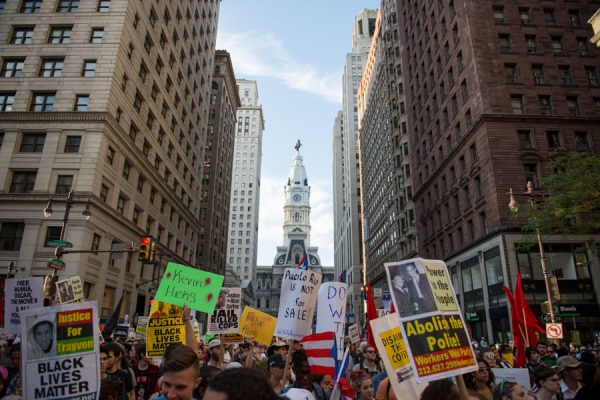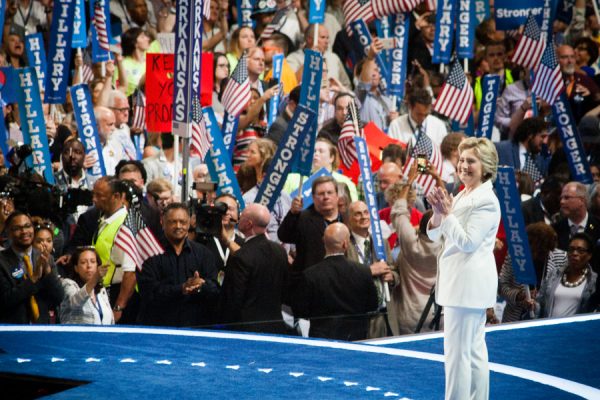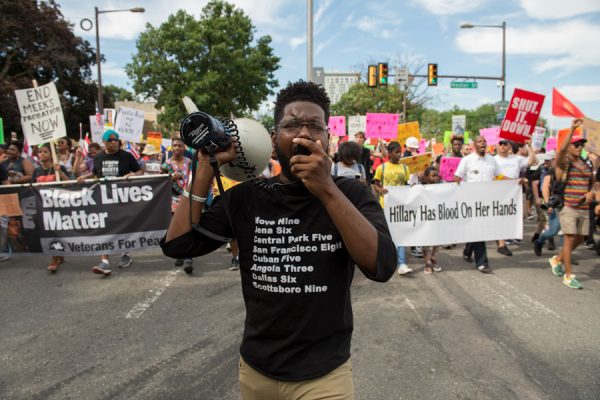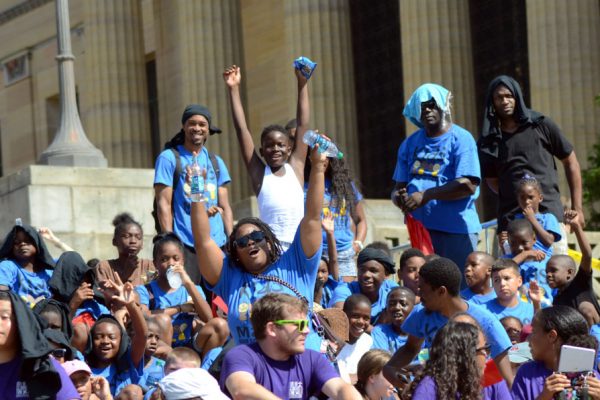Welcome to Clintonville: Kensington Shantytown Built in Protest of Hillary Clinton and DNC
“Clintonville,” a pop-up community that reflects the pain and anxiety of the poor and homeless, has been established in a lot at the corner of Somerset and American Streets in Kensington.
“This is by poor people, for poor people,” Cheri Honkala, founder of the Poor People’s Economic Human Rights Campaign (PPEHRC), said. “We’re here because of the growing equality of inequality in our country.”
“The beginning thrust for this (PPEHRC and protest encampments) was when the first Clinton destroyed welfare,” she added. According to Honkola, “[Bill] Clinton declared homelessness on America” by destroying the social safety net.
The encampment faced American Street and was largely a group of tents made from tarps and poles. The extreme heat slowed the development of “Clintonville”, but did not diminish the passion and commitment of the encamped activists. By late Sunday afternoon, a school bus had been repurposed as a place to sleep. An improvised tent was created by a sheet strung from the side of the bus.
During the afternoon, about 15 people were living in “Clintonville.” It was unclear how many would leave and how many more would arrive to spend the night. The core group of residents were connected with PPEHRC and activists from different groups came and went throughout the afternoon.
“We sleep everywhere,” Honkala said, motioning around to the activists present at the site. “Last night Galen slept half in the truck and half in the air.”
According to Honkala, people slept on chairs pushed together into a makeshift bed, sections of couches and even the grassy field.
The “community from nothing,” as Honkala described it, is a knowing homage to the Hoovervilles of the Great Depression. “Clintonville” is a symbol of how the policies of Democrats and Republicans have starved poor communities, said Honkala.
Although it is a political statement, there are practical benefits to the encampment. Throughout the afternoon, several passers-by are offered cold water and shade. “Clintonville” continues Honkala’s history of creating encampments in order to protest injustice and to alleviate some of the pain of extreme poverty.
“Clintonville” is a microcosm of poor communities, said Sandra, a homeless mother of a 1-year-old child.
“It demonstrates what life is like for people abandoned by government services and neglected by corporate interests,” she said.
“We can only rely on each other. We have to come together and see that individualism isn’t going to save American,” said Luciano, a young man bouncing between a few different temp agencies.
Recently, Luciano lost a job after missing a day to assist Honkala’s work. He didn’t regret it because Honkala has treated him like family. Luciano said he believes that families need to have each other’s backs.
The residents of “Clintonville” gathered under the tent nearest American Street to get out of the heat and shared a prayer. Though led by a visiting pastor, the prayer was directed to god in all traditions. Each member offered a prayer for the group, the country or the marginalized communities they stand with.
The location of the encampment is significant in the history of marginalized American communities. Mother Jones (the labor leader, not the magazine) lead the March of the Mill Children from American Street in Kensington to the New York home of President Teddy Roosevelt in 1903.
“American Street is symbolic of the rest of the U.S. It used to be the mecca of, say, the textile industry and there used to be tons and tons of jobs,” said Galen Tyler, a leader of PPEHRC and formerly homeless father.
“There were so many jobs where people with the minimum education could get a job making anywhere from $11 to $16 an hour in the late ‘70s and early ‘80s,” he added. “All the manufacturing jobs have left this country and are never coming back just like the factories have left this neighborhood and are never coming back.”
Tyler’s past experiences with the kind of reinvestment that Democrats and Republicans advocate fuels his skepticism. He lived in the area the last time a politician promised to reinvest in Kensington.
“In the late ‘90s the federal government gave $45 million to rebuild this strip and look at what the people in power thought was necessary,” he said. “They gave you a beer plaza, a Wine and Spirits, a McDonald’s, a Checker’s.”
Although Honkala said she has permission from the lot’s owner to establish “Clintonville,” she is still skeptical of police attention.
A young man approached the encampment and asked if a resident of “Clintonville” could call the police for him. He said his bike had been stolen by some teens and he could see that they were just hanging out on a nearby street.
Most residents said nothing. The few who did respond told the young man that the police wouldn’t help him anyway.
“Do you want me to call the police for that guy?” said a friend of Honkala’s.
“I don’t think so,” Honkala said. “Because there’s a million people out there and this right now, we’ve got to think about the implications of doing that.”
Honkola plans to keep “Clintonville” open for the remainder of the Democratic National Convention.

